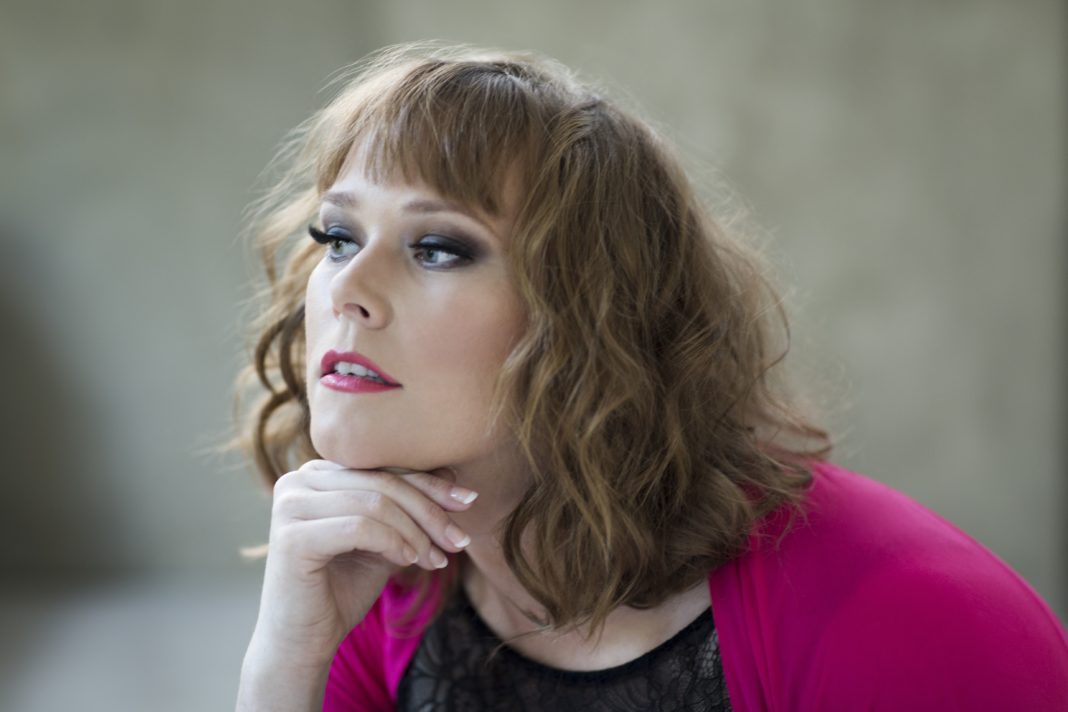It is amazing what Mozart accomplished in his last year alive. Amongst the completed works is his opera The Magic Flute, one of the most popular operas of all time that is regularly performed all over the world.
In celebration of his final year, 1791, the Los Angeles Philharmonic is holding four concerts this week featuring his Clarinet Concerto and excerpts (roughly 50 minutes) of music from The Magic Flute. Joining Gustavo Dudamel and the LA Phil on stage will be, amongst others, soprano Jessica Pratt sing the role of The Queen of the Night.
“I did it at Covent Gardens,” she said prior to her first rehearsal with the LA Phil. “Then the Metropolitan Opera and now here. It’s not a role I sing happily. It’s a great role. I like these situations. The Met was a shortened version for children and this is a concert version. I don’t like sitting around waiting to perform.”
Though The Queen of the Night does allow for the performance of one of Mozart’s most beloved arias, it isn’t a role that requires great time on stage. Dramatically important to the opera, there are only two arias and some dialogue before the second aria with a little bit of singing late in the opera.
“I think of [the role] as a necessary evil. If you ask me afterwards I’d say I love it. It’s not so bad. It’s a strange role. You sing these high F’s and everybody is worrying about the F’s and you can hear the audience doing it. And then they realize it’s that aria and the second time they know it’s that aria and they are quiet. It’s strange. I sing up to an A so an F isn’t a problem. It’s more the mechanics.”
The performance for children in New York was her debut at the Met. “It was an incredible experience,” she says of that first performance. “The people were kind and the acoustics were great, which I didn’t expect in a room that big. I’m going back to do Lucia di Lammermoor, so I’m looking forward to doing that. I like it better when I go on stage and come out the other end three hours later.”

Whatever her reservations may be about the part, she’s looking forward to performing with the LA Phil. “I’m actually very excited about it,” she says. “I haven’t sung much in America, so it’s an honor to work with Gustavo Dudamel. He’s really an intelligent person and a great musician. It’s a shame he doesn’t do more opera. We could do with conductors that care that much about music. This is a highlight, even though it’s The Queen of the Night.”
If there are other roles she prefers, why do this one? “I like the challenge. It’s sort of a curious role for me. I can do it, but when it gets time to doing it, I worry about it. My mom told me when you fall off a horse you have to get right back on. That’s how I look at my whole career.”

(c) Benjamin Ealovega 2015
She also thinks opera companies can be more open in their programming. “ We’re getting stuck in constantly repeating the same operas over and over, but they should be augmented by discovering new and older operas to mine. We get lazy. That’s one of the dangers we have of the opera business repeating. You also need singers who can do these operas. Young singers aren’t particularly interested because it is hard work and they have to focus on technique to sing them.”
There’s an additional lesson for younger singers to learn from Pratt’s experience with this role. “It’s healthy for [them] to know that it is not all perfect and you have to make choices. We’re real human beings who have real hopes and dreams. And this is not the nicest of businesses. I sing certain operas I don’t particularly want to sing so I can do others.”











